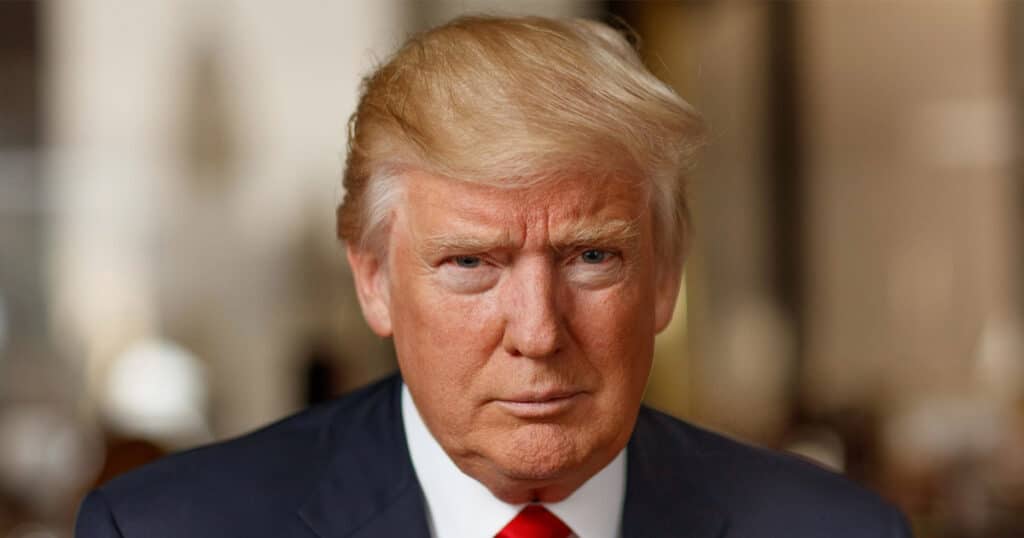
VIDEO: John Stossel Obliterates Robert Reich In Just Eight Minutes
This is a little thing, but if you’re on X like I am and you keep running into tweets from the diminutive troll Robert Reich, inflicted on the American public first by Bill Clinton, who named him as his Secretary of Labor but who has for some reason never gone away, you’ll appreciate it like I did.
Reich is a prolific podcaster and social media influencer, as well as a contributor on the various cable news networks. This is the case despite the fact that he’s almost universally wrong in every particular – from his unhinged Trump Derangement Syndrome attacks on the Republican presidential nominee to his stupid pronouncements about the economy.
He’s a fundamentally unlikeable figure, which is probably a good thing; if Reich were more charismatic, there is a danger that more people would take him seriously. But the stupid things he says – it’s corporate greed and not government spending which causes inflation, billionaires ought to be outlawed, foreign trade exploits black and brown people in the Third World – are echoed by others who do have some charisma.
And that’s unfortunate. It’s also dangerous, particularly when the people who would otherwise correct these idiocies and blow Reich out of the water are so often suppressed by social media platforms.
Stossel, fortunately, doesn’t get suppressed, or at least not universally. So it’s good to see him annihilate Reich for being wrong about more or less everything.
The only thing he says that I’m not on board with involves the discussion about trade. In general, I agree that the more trade you have with other countries, the wealthier you’ll be. But that’s only true in a general sense, and not when trading relationships are abused.
China being the obvious counter-example. Cuba being another.
In Cuba’s case, the argument goes that we shouldn’t have a trade embargo against the Cubans because (1) it hasn’t removed the Castro regime from power and (2) the people of Cuba and the U.S. are both less well off. And those are both true statements, but in context they miss something important.
Which is that the Castro regime has set itself up as a monopoly on Cuban trade, and so trade with Cuba does not equal trade with the Cuban people. You can’t really go to Havana and make deals with individual Cubans to buy sugar or cigars or plastic bobbleheads from them; any such conversations cannot be had without someone from the Castro regime making all the decisions about such trade relationships and ultimately walking away with all the profits from them.
So any benefits you might generate from such a relationship, at least on the Cuban side, will only prop up that murderous regime. And seeing as though the entire point of trading with Cuba is to try to help the people there – there is nothing in Cuba anymore which is better than you can get elsewhere – you’re actually harming them by prolonging their suffering under the Castro boot.
Whereas with China, there is an opposite but equally bad experience. Trade with China is a lot like trade with Cuba, in that ultimately you’re enriching the Chinese Communist Party which has its greasy fingers in all the pies there. You will find quasi-independent companies in China which aren’t fully controlled by the CCP or the People’s Liberation Army, as China might call itself a communist country but it really isn’t communist in the old-fashioned sense.
China is actually much more of a fascist country.
The government doesn’t own the means of production in China anymore. It does exercise control over the means of production, though, which is the essence of both Italian and German fascism.
So you trade with China and they demand that you turn over your intellectual property to them, and that’s them used against you. They’ll also utilize slave labor and shocking abuses of the environment to undercut the market on costs, which is really effective in capturing market share but destructive to the entire justification of the free market. And the presence of that fascist regime is a corrupting one which prevents trade from producing the benefits it’s supposed to.
Worse, trade with the corrupt Chinese Communist Party and the entities it exercises control over is having the effect of altering our market and culture in ways we would never choose. When Houston Rockets general manager Daryl Morey criticized the brutal ChiCom crackdown in Hong Kong, for example, he was essentially canceled by the Chinese regime – in this country – for speaking out. China canceled telecasts of all Rockets games in the country, and the Rockets had been the most popular team in China since Yao Ming had been their center, and then they threatened to tube their entire relationship with the NBA if Morey wasn’t silenced. LeBron James, whose lifetime academic achievements are utterly nil, said that Morey – a Princeton MBA graduate – needed to get “educated” on Hong Kong.
This isn’t so much to disagree with Stossel. In fact, the solution to the China trade problem isn’t so much to return to an isolationist or protectionist trade policy (though repatriating parts of our supply chain is desirable when the subject is, say, pharmaceuticals or weapons systems or certain high-tech dual-use products) as it is spreading the supply chain out to other countries.
Assuming the quality of goods is equal, you’re much less threatened by adding Romania, or India, or Mozambique, or Peru as trading partners to replace China in the supply chain. What’s called “globalism” in trade isn’t as “global” as it ought to be, and China has taken advantage of what’s probably more accurately termed “political trade” than “free trade.”
So I’m for laying colossal tariffs on China in order that some manufacturing can be brought home, yes. But also so that some of it might be displaced to other countries who aren’t pursuing superpower status at our expense.
Having said that, we’ll certainly go with Stossel over Reich, as Reich doesn’t understand any of the above either. He thinks all manufacturing in developing nations is exploitative of the workers there, so opening a manufacturing plant in Angola or Suriname would do more harm than good.
With nothing whatsoever, of course, to say about the Chinese-run mines in places like the Congo, where little kids are paid starvation wages to dig out nickel and cobalt. That actually does serve his point but he won’t talk about it – because at the end of the day Reich likes the way the Chinese do business. He wishes he was one of the ChiCom oligarchs controlling everything.
Like I said, he’s a profound moron. And thanks go to Stossel for exposing him as such.


